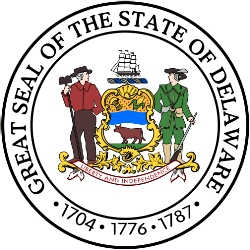Delaware iGaming Enjoys a Banner Year

In the past, Delaware’s tiny population of less than one million people has struggled to support its online gambling industry, but last year proved to be a successful year for the First State’s operators. In fact, 2016 was the biggest year for the market since the legalization of iGaming back in 2013.
Annual Revenues Soar by 62%
All in all, Delaware’s three licensed online gambling sites generated $3 million in gross iGaming revenue in 2016, marking a 62 percent increase over the amount of revenue generated in 2015. In Delaware, online poker is only open to the state’s three licensed racetracks, namely Dover Downs, Harrington Raceway and Delaware Park. Of the three racinos, Delaware Park had the largest market share and brought it $1.4 million of the total revenues, followed by Dover Downs with $1 million, and lastly Harrington Raceway with $534,000.
2016 Ends on a High Note
Last year’s earnings were bolstered by a strong finish in December, during which iGaming produced $229,987 in revenues, up by 28 percent versus the $180,109 collected for same month in 2015. Furthermore, it was the best revenues that the market had produced since the closeout of a strong August 2016 performance.
In December, Dover Downs generated revenues of $95,916 compared to the $93,849 reported by Delaware Park. Breaking the figure down, Delaware Park came out the winner for table games at $43,769 versus the $33,954 earned by Dover Downs; as well as for poker revenues at $16,697 versus $6,672; although Dover Downs came out ahead for video lottery sales at $55,289 compared to $33,381 for Delaware Park.
In the meantime, Harrington Raceway consistently comes in third for revenue generation; video lottery is by far the biggest income generator at the venue, accounting for $33,197 of the $40,221 earned by its online gambling site in December 2016. Table games, on the other hand, only made $4,482 for the raceway, while poker brought in a mere $2,541.
Unpredictable Market
Although the overall story for 2016 was a positive one for the Delaware’s online gaming market, it’s worth noting that the iGaming landscape in the state is highly unpredictable. This makes it very difficult for operators to create accurate budget forecasts for upcoming months and years.
As an example, Delaware Park generated $130,501 in gross gaming revenue during the busy month of August 2016, but in September revenues fell by 41 percent with the casino only bringing in $76,997 from online gaming. That’s despite the fact that the month was incredibly busy with players taking to the virtual tables over the Labor Day holiday weekend. Furthermore, wagers were actually higher on the month at $5 million versus $3.1 million for August, but many of those bets proved to be winning ones, resulting in high payouts and low profits for the operator. Unpredictable as it is, the Delaware online gambling market seems to be trending upward.
Trending Upwards
The upward trajectory experienced by the online gambling market also proved to be true for New Jersey, which saw a 32 percent increase in its gross gaming revenues in 2016. In New Jersey, the introduction of PokerStars has largely been credited for the successful year; however, Delaware did not see any major changes to the industry, indicating that players are just taking to the virtual tables more often.
Since regulation, New Jersey’s gambling market has grown from $122.9 million in 2014, to $148.9 million in 2015, and now $196.7 million in 2016. In fact, so important has New Jersey’s online gambling industry become that its revenues were chiefly responsible for an overall 1.5 percent rise in the state’s overall revenues to $2.6 billion, without which the market would have declined by 0.3 percent.
There may be reason for concerns going forward, though, as U.S. Attorney General Jeff Sessions has signaled his possible intentions to revisit the DOJ’s reinterpretation of the Wire Act with a view to possibly reintroducing a federal ban on iGaming. Commenting on the issue, NJ State Senator Raymond Lesniak stated:
“That’s not going to sit well with our Atlantic City casinos, where online gaming is keeping the lights on. It hasn’t been a spectacular success, but it certainly keeps the margins going, and it’s actually the only increase in casino revenues that we’ve seen. It’s certainly critical to the state of New Jersey and we’d be very concerned if he were to mess around with it.”







